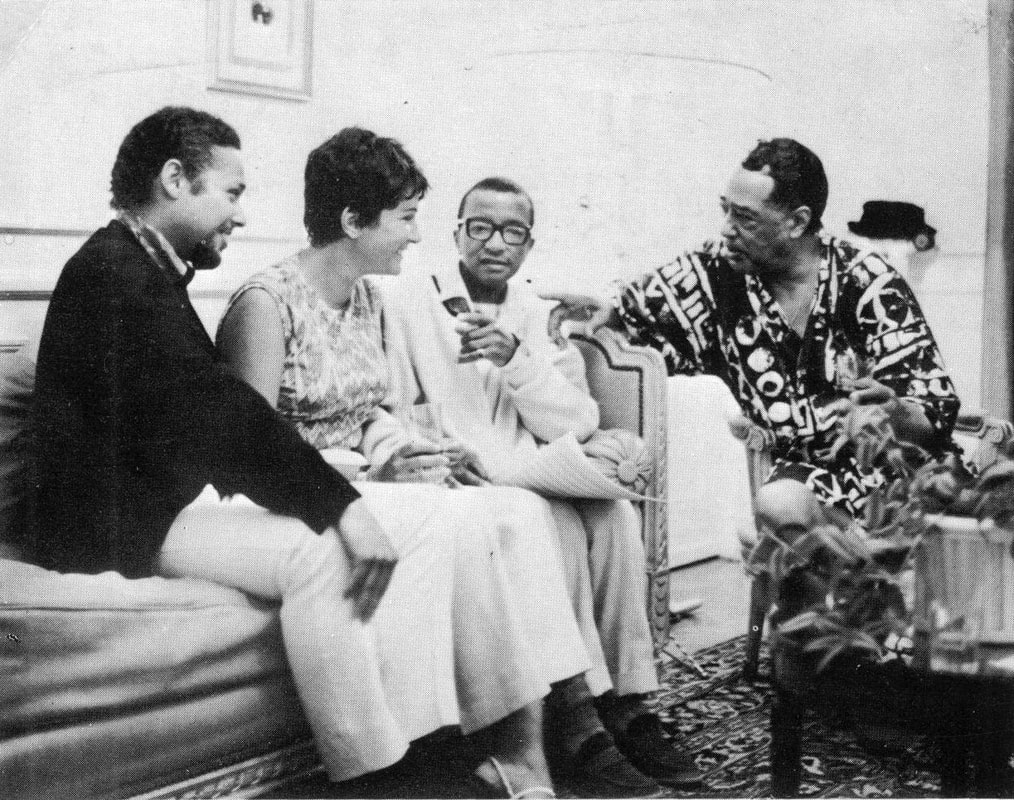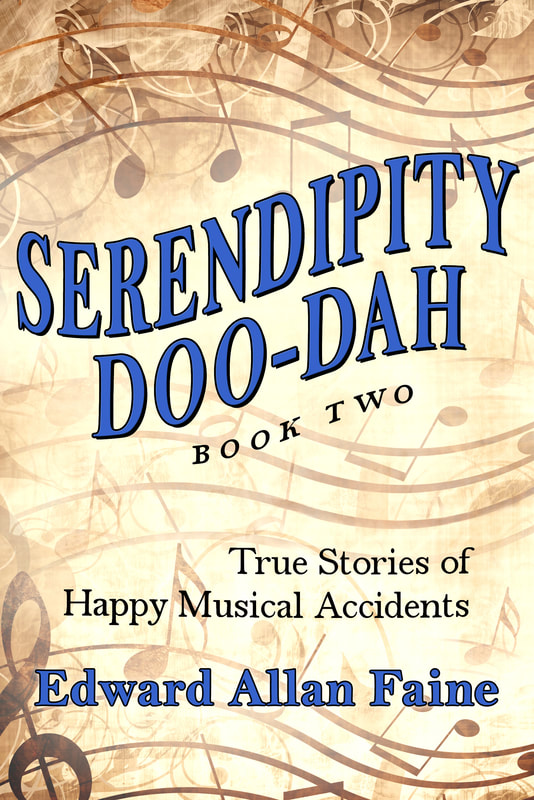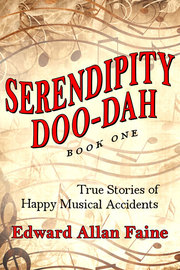Making an artist feel at ease came naturally to her, and that, along with a superb journalistic sense, allowed her to uncover fresh understandings of the likes of Duke Ellington, Abby Lincoln and Max Roach, Horace Silver, Ray Charles, Bill Evans, and Dizzy Gillespie.
You can sense that her subjects admired her for her talent, as well as for her innate ability to give as well as take without a trace of intimidation felt by either party. We learn anew of the various ticks, quirks, and idiosyncrasies of Master Ellington as if learning about them for the very first time—his playfulness, flirty attitude, attentiveness, literary sense, generosity, and superstitions.
We also learn how “La plus belle Lil” came to record one of the gems in the Ellington/Strayhorn canon, the focus of this review.
“Star-Crossed Lovers”
In July 1966, Lilian arrived at the Antibes Juan-les-Pins Jazz Festival on the French Riviera where she would sing with her trio and conduct interviews with Duke Ellington and other artists for her weekly radio show on the Italian radio network.
Backstage one afternoon, she approached her favorite soloist with the Ellington orchestra, altoist Johnny Hodges:
“I’m a passionate fan of your rendition of ‘Star-Crossed Lovers.’ . . . Is there any chance you could play it tonight?”
“Nope, sorry, we haven’t played it in years . . . Let’s go ask [Duke].” [1]
They did, and received his go-ahead.
That night, our inquisitive interviewer joined the French TV crew in the wings to watch the band’s performance. The maestro steered the orchestra through their lengthy set, wrapping it all up with a long closing number featuring Johnny Hodges:
The audience sent wave after wave of enthusiastic applause [in his direction]. Hodges, standing in front of the orchestra, turned to Ellington and then motioned with his head toward [Lillian in the wings. With an amused smile, Ellington then went to the microphone.] “A lady has come all the way from Rome and she’s asked for a couple of numbers from our Shakespearean Suite “Such Sweet Thunder” . . . let’s do the one which is Romeo and Juliet. And the Bard called them the star-crossed lovers!” [2]
“I’m glad you asked for it; it’s one of my favorites too.”
“I’m only sorry that it has no lyrics. I would love to sing it. And I would try to have that special, sensuous ‘Hodges sound.’ Heavens, when he blows those long, languid notes . . . it’s an actual caress.”
“And you would like to sing it? . . . Tell you what I’ll do . . . I promise I’ll send you some lyrics as soon as I get back to New York.” [3]
And he did.
Six months after the Antibes festival concluded and out of the blue, Duke informed Lil that she would be receiving an air ticket to join him and the band in Milano, Italy, for a Teatro Lirico concert in January 1967. She accepted, and when she arrived, Ellington fussed over her as other members of the band waved by, trumpeter Cat Anderson calling out: “There we go again . . . star-crossed lovers, I bet!”
The evening concert [at the Teatro] was excellent . . . Ellington was enjoying himself, smiling at [Ms. Terry] from time to time as she stood in the wings, waiting for the moment when Hodges would play . . . Suddenly [she] realized they were actually playing their closing signature tune. [She stepped on the stage and] whispered to Ellington as he sat at the piano. “If there is no ‘Star-Crossed Lovers’, then I’ll take my sandals back” [she had gifted them to him the prior evening] . . .
The very moment the signature tune ended [Duke] went to the microphone and informed the public. “We have a request from Miss Lillian Terry, the greatest singer in Italy. She would like to hear the Romeo and Juliet theme from ‘Star-Crossed Lovers,’ the melody played by Johnny Hodges!”
Hodges got up with his alto sax and smiled at [Terry], going to the microphone. [4]
Some 15 years later, Lil found herself sitting at a dinner table across from jazz pianist Tommy Flanagan, Ella Fitzgerald’s accompanist for several years. A lively conversation ensued that led to Tommy asking her what songs she’d like to sing with him at the piano. “Loverman” and Strayhorn’s “Lush Life” came up first, and then Lil said,
“Ellington and Strayhorn bring to mind Johnny Hodges and his sensuous way of playing a particular ballad that has never been sung before. I told Billy of my disappointment that it had no lyrics; he promised to send me a text, and a month later . . . there it was.”
“And what song was that?”
“It’s from the suite Such Sweet Thunder” . . . Lil leaned over the table toward pianist Flanagan and he met her halfway to say in unison: ”Star-Crossed Lovers.”
He exclaimed, “I knew it! Why, do you know that’s my favorite ballad and hardly anybody plays it? And [Strayhorn] gave you the words himself? OK, let’s do it. Now which recording date would you have in mind?” [5]
George Avakian, at the time an independent record producer and top-line jazz artist manager, wrote flattering liner notes for the album. He noted that Europe had produced many fine instrumentalists but very few vocalists. Among them, Lilian Terry sounds the most American.
He cited her appearances at the prestigious Antibes Festival, where Lillian was the only European singer to participate, sharing the stage with Ella Fitzgerald, Anita O’Day, Nina Simone, and Mahalia Jackson [7].
The recording was an immediate success, especially in Japan but also in the United States. The ballad that surpassed—and therefore was played on the air—was “Star-Crossed Lovers. [8]”
- Lilian Terry, Dizzy, Duke, Brother Ray and Friends: On and Off the Record with Jazz Greats (Chicago: University of Illinois Press, 2017), 4.
- Ibid., 5–6.
- Ibid., 6–7.
- Ibid., 14–17.
- Ibid., 18.
- Ibid., 19.
- George Avakian, Liner Notes, Lilian Terry Meets Tommy Flanagan: A Dream Comes True, 1982, Soul Note LP.
- Terry, Dizzy, Duke, 19.




 RSS Feed
RSS Feed